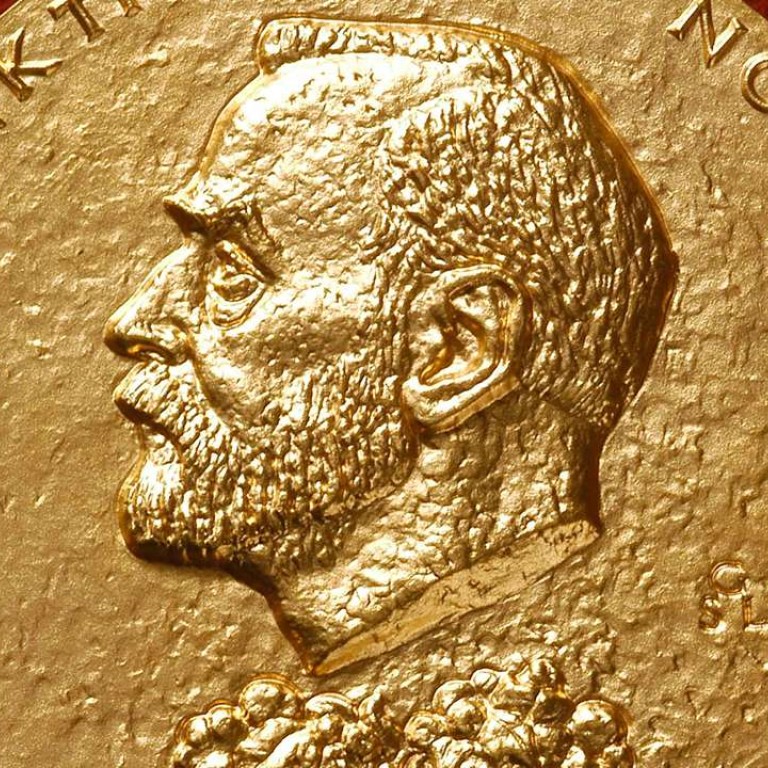
Why this Nobel Prize confers ‘misleading authority’
Two US-based professors have won the Nobel Prize in economics for studying how best to design contracts ...
SCMP, October 11
The interesting thing about the Nobel economics prize is that Alfred Nobel’s will in 1895 founded prizes in his name for physics, chemistry, medicine, literature and peace but not for economics.
The economics prize only came into existence in 1968 as a special creation of Sweden’s central bank and it then took on all the robes and rituals of the other prizes.
I think Alfred Nobel was right in not considering economics. It is not really a science, certainly not in the sense of physics and chemistry with all their exploration and discoveries of the natural world.
Economics is more like a series of basic rules for applying common sense principles of household management to the way that money works at the macro level. Get up to speed on monetary theory, the balance of payments and national accounts and you have pretty much exhausted what there really is to know as a hard discipline.
The rest is mostly matters of judgement in human relations, which you actually learn best as a child at your mother’s knee. Honesty is the best policy, a stitch in time saves nine, a penny saved is a penny earned – these are all economic principles with application to national administration as well as personal conduct.
But there would not be much scope for university economics departments if economics professors were ever to admit it and thus they beguile us with expressions of wonder at their discoveries that supply, demand and price are linked to each other. It’s true. It’s right there on the blackboard.
And the sun sets in the west and water is wet and bears do it in the woods.
These latest Nobel winners are credited with research dating back to the 1970s that created “new theoretical tools” (new, you understand) for how contracts help people and companies deal with conflicting interests.
Oh, do tell me more. What a momentous breakthrough. Who would ever have thunk it? Here I was, of the opinion that contracts serve no other purpose than to make lawyers money but it turns out that I was wrong. They really have some use after all in helping people of conflicting interests reach agreement. What a marvel.
Economics is more like a series of basic rules for applying common sense principles of household management to the way that money works at the macro level
There is more. These professors discovered that there is frequently a conflict in commercial endeavours between cost and the quality of product or service. I stand amazed, a new Albert Einstein, no, two Einsteins in one go.
One danger of this sort of thing was cited by the Austrian economist Friedrich Hayek at the 1974 Nobel banquet. He said that, if asked, he would have advised against establishing a Nobel economics prize.
“The Nobel Prize confers on an individual an authority which in economics no man ought to possess...
This does not matter in the natural sciences. Here the influence exercised by an individual is chiefly an influence on his fellow experts; and they will soon cut him down to size if he exceeds his competence.
“But the influence of the economist that mainly matters is an influence over laymen: politicians, journalists, civil servants and the public generally.”
I particularly appreciate that bit about “an authority which in economics no man ought to possess”. People want gurus to tell them what the future holds but economics rarely has value outside of general principles and the conceit that it offers more should not be encouraged.
The classic example of this must always be the 1998 collapse in the United States of Long Term Capital Management, a hedge fund that put the trading theories of two Nobel laureates to work and then found, as every grunt on a dealing desk could have told them, that the exits from a trading position are never wide enough to accommodate a stampede.
Better the two professors should have stayed in university. Better yet that a Nobel Prize was never created to confer misleading authority on them.
But if we must have a prize, let it be given not for theoretical fancies but for real achievements in keeping national finances on a sound footing.

